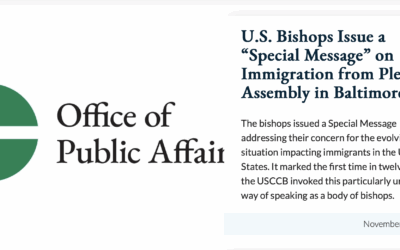Valentine’s Day is on Ash Wednesday this year. At first thought, they seem like an unlikely pairing. Valentine’s Day is a day reminiscent of romance and love. It’s filled with roses, chocolates, lavish dinners, teddy bears, fancy underwear, cards, homemade mailboxes and candy hearts with sweet messages.
Ash Wednesday is a day reminiscent of death. It’s filled with people walking around with ashes on their foreheads to remind them that they’re going to die and turn into dust. And they’re not allowed to eat much that day.
The two could not be more diametrically opposed. But ruminating further, they are, in actuality, a perfect couple.
Our modern Valentine’s Day celebrates the easy parts of love. The initial attraction and falling in love, for example. The butterflies in the stomach and the impulse to give gifts. Being one’s best and being willing to overlook anything that is not the other person’s best. Essentially, loving when one feels in love.
Ash Wednesday is the harder kind of love. The initial attraction has disappeared. The butterflies have been replaced with a lump in the stomach and gift giving is less impulsive. Familiarity has bred out wanting to be one’s best, and it’s certainly bred out the willingness to overlook the other person’s shortcomings. Ash Wednesday is loving when one doesn’t feel in love and, more importantly, being loved when one doesn’t deserve it.
Death entered the world when our first parents chose the glorification of their own egos over their love for God and committed original sin. More than just trust was broken with their betrayal. Their very nature was broken. And sharing their nature, all humanity inherited the brokenness. We were meant to love perfectly and to be perfectly loved in return. That’s what we feel on Valentine’s Day. However, sooner or later, that serpent slips into the garden of our relationship with its temptations that sow animosity and discontent. That’s when we find ourselves on Ash Wednesday.
Happily, as the Fall was not the end of the Greatest Story, Ash Wednesday is not the end of our love story. It leads into a time of trial, yes and a time of pedagogy. We have to learn to love deeper than roses, chocolates and fancy underwear. We have to learn that “Love is patient and kind; love is not jealous or boastful; it is not arrogant or rude. Love does not insist on its own way; it is not irritable or resentful; it does not rejoice at wrong, but rejoices in the right. Love bears all things, believes all things, hopes all things, endures all things.” (1 Corinthians 13:4-7). It is a lot, I know. St. Thomas Aquinas distilled it down to “Love is the choice to will the good of the other.”
That is our job in the Lents of our relationship. To discipline ourselves to will the good of our other instead of thinking of only ourselves. To recognize that we have committed wrong and to feel contrite enough to wear the ashes of it on our forehead. To recognize we are not perfect but we have an opportunity to change ourselves to become a little more perfect and a little easier to live with for each other. The relationship must go through its Good Friday. We each die a little bit to self and with it, our relationship – as it was – dies too.
However, it does not end there. Ours is a God of resurrection, as GK Chesterton once said. After Good Friday comes Easter. Our relationship has gone through a painful, torturous death, but is resurrected in a more glorified state. The bond is stronger, the love deeper, the appreciation returns.
We stop being the smug Pharisee Simon and become the humble, sinful woman in Luke 7: 44-47: “Do you see this woman? I entered your house, you gave me no water for my feet, but she has wet my feet with her tears and wiped them with her hair. You gave me no kiss, but from the time you came in she has not ceased to kiss my feet. You did not anoint my head with oil, but she has anointed my feet with ointment. Therefore, I tell you, her sins, which are many, are forgiven, for she loved much.”
We have learned to love much and we find ourselves in Valentine’s Day again.
Saint Francis de Sales said, “The state of marriage is one that requires more virtue and constancy than any other; it is a perpetual exercise in mortification.” More Ash Wednesdays will arise but as we work our way through the marital Lents in life, we eventually find ourselves in more and longer Valentine’s days when love is easy.
Without the sacrificial love of Ash Wednesday, there would be no transformation of the romantic love on Valentine’s Day into something lasting. Only deep relationships survive. Without the small deaths on our marital Good Fridays, there would be no “til death do us part.” Valentine’s Day and Ash Wednesday are, indeed, a perfect couple.





0 Comments